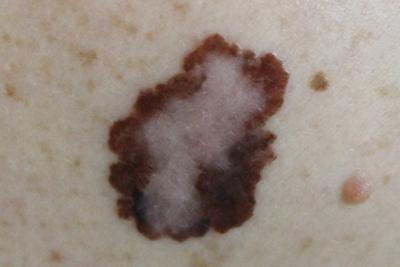
Skin cancer is a relatively common type of cancer and one that can be quite serious. Often, the symptoms and tell-tale signs of skin cancer are easy to spot, at least compared to many other types of cancer. Still, it’s crucial to be vigilant. Worried about skin cancer and residing in New York, NY? Get in touch with Penstein Dermatology.
The Risks of Skin Cancer
The American Cancer Society reports that more than 3 million Americans are diagnosed with basal and/or squamous cell cancer per year. Squamous cancer occurs in the upper layers of the skin while basal cancer occurs in the deeper layers. Given how common skin cancer is, everyone should keep an eye out.
The American Academy of Dermatology notes that if skin cancer is caught early, meaning before it spreads to the lymph nodes, the five-year survival rate is very high, roughly 99 percent. Once it spreads to the nearby lymph nodes, unfortunately, the survival rate drops to 68 percent. If the cancer spreads to further organs, the survival rate drops to about 30 percent.
In other words, catching skin cancer early is vital. Want to undergo skin cancer screening in New York, NY? Stop by Penstein Dermatology. For now, let’s look at some common symptoms of skin cancer.
The Symptoms of Skin Cancer
Skin cancer can appear pretty much anywhere. That said, skin exposed more regularly to sunlight is typically more likely to develop cancerous cells than areas not regularly exposed to sunlight. Still, it’s important to keep an eye on your whole body.
Basal cell skin cancer often appears on the neck and face because they are constantly exposed to sunlight. You may notice a pearly bump. You may also see a brown lesion that at first glance could look like a scar. A firm, red nodule could be a sign of squamous cancer. You may also see a flat, scaly, and crusty lesion.
If you notice a brown mole-like spot, it may be melanoma cancer. While noncancerous moles are typically symmetrical and don’t change in size, a melanoma spot is often asymmetrical. It will frequently change in size and may even bleed.
Everyone should keep an eye out for skin cancer. People with fair skin may be more likely to develop this cancer. If you spend a lot of time in the sun, this could increase your risks. This doesn’t mean you should avoid spending time outdoors, but you should wear sunscreen and be diligent about watching for signs of cancer. No matter what, if you notice symptoms of skin cancer, you should contact a doctor right away.
Worried about skin cancer and residing in New York, NY? Reach Penstein Dermatology by dialing (212) 517-5171.